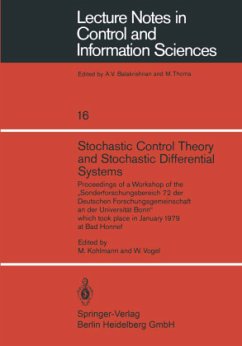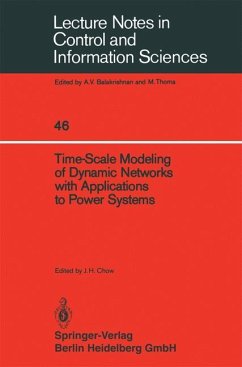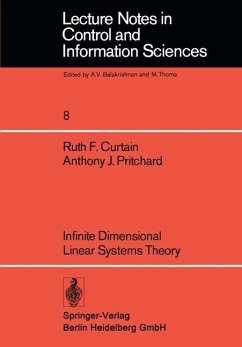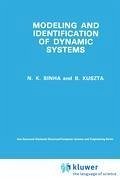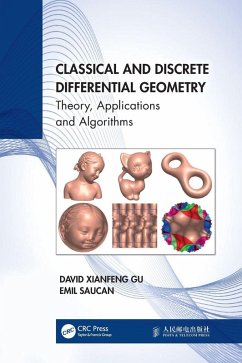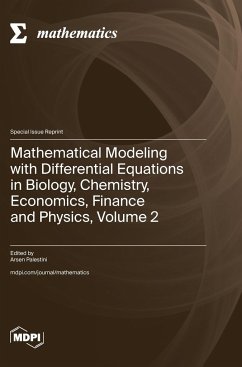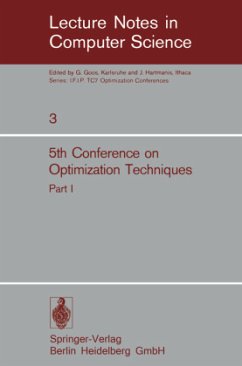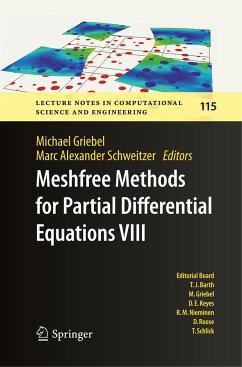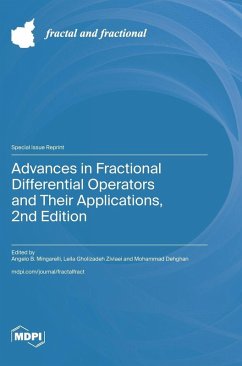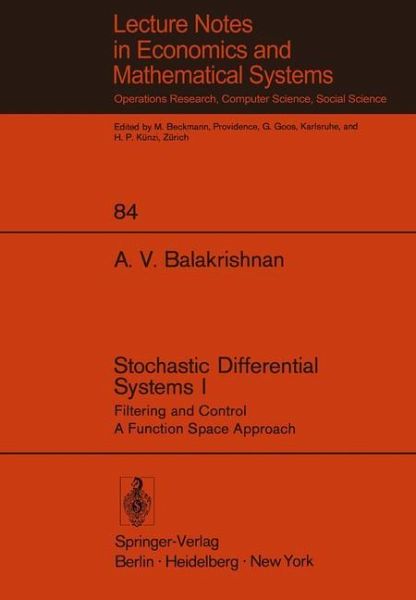
Stochastic Differential Systems I
Filtering and Control A Function Space Approach

PAYBACK Punkte
39 °P sammeln!
This book is an outgrowth of a graduate course by the same title given at UCLA (System Science Department). presenting a Functional Analysis approach to Stochastic Filtering and Control Problems. As the writing progressed. several new points of view were developed and as a result the present work is more in the nature of a monograph on the subject than a distilled compendium of extant works. The subject of this volume is at the heart of the most used part of modern Control Theory - indeed. the bread-and-butter part. It includes the Linear (Bucy-Kalman) Filter Theory. the Feedback Control (regu...
This book is an outgrowth of a graduate course by the same title given at UCLA (System Science Department). presenting a Functional Analysis approach to Stochastic Filtering and Control Problems. As the writing progressed. several new points of view were developed and as a result the present work is more in the nature of a monograph on the subject than a distilled compendium of extant works. The subject of this volume is at the heart of the most used part of modern Control Theory - indeed. the bread-and-butter part. It includes the Linear (Bucy-Kalman) Filter Theory. the Feedback Control (regulation and trz.cking) Theory for plants with random disturbances. and Stochastic DifEerential Games. Linear Filter Theory is developed by a 3-Martingale approach and is perhaps the sleekest one to date. We hasten to add that although the terITlS are Engineering-oriented. and a background in Control Engineering is essential to understand the motiva tion. the work is totally mathematical. and in fact our aim is a rigorous mathematical presentation that is at once systematic. We begin with some preliminary necessary notions relating to Stochastic Processes. We follow Parthasarathy's work in inducing Wiener measure on the Banach Space of Continuous functions. We introduce the linear Stochastic integrals right away. We are then ready to treat linear Stochastic Differential Equations. We then look at the measures induced.





